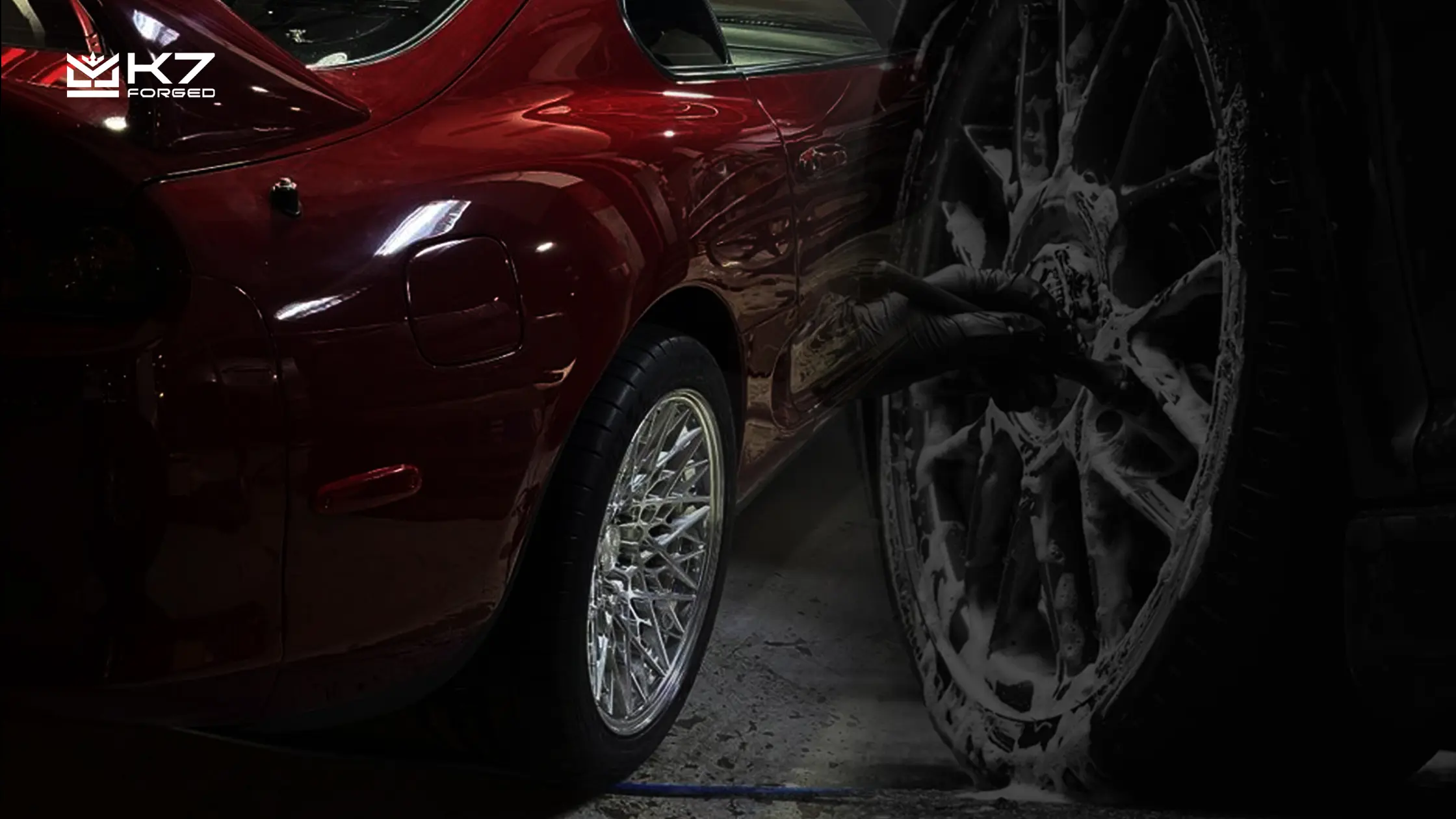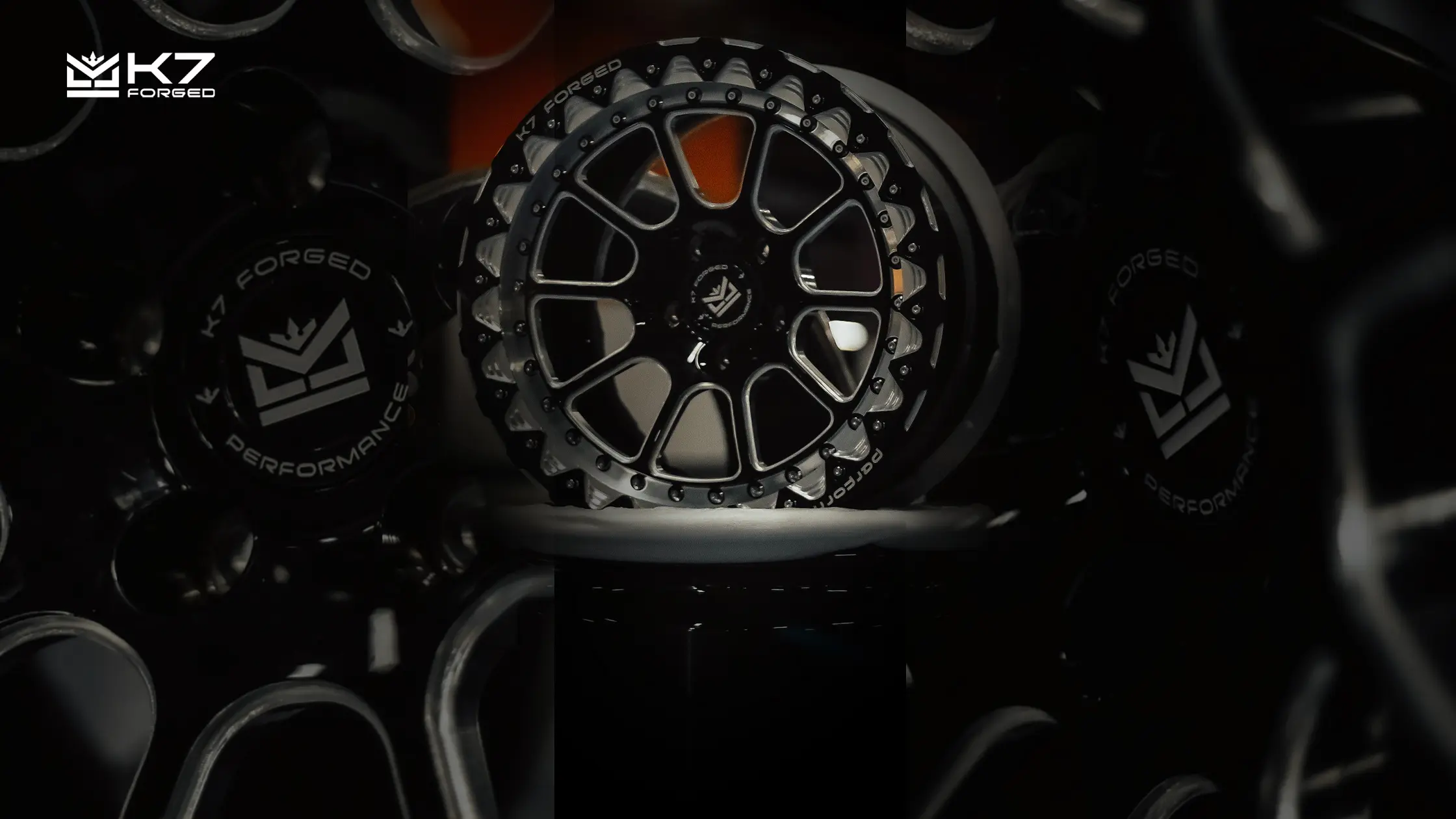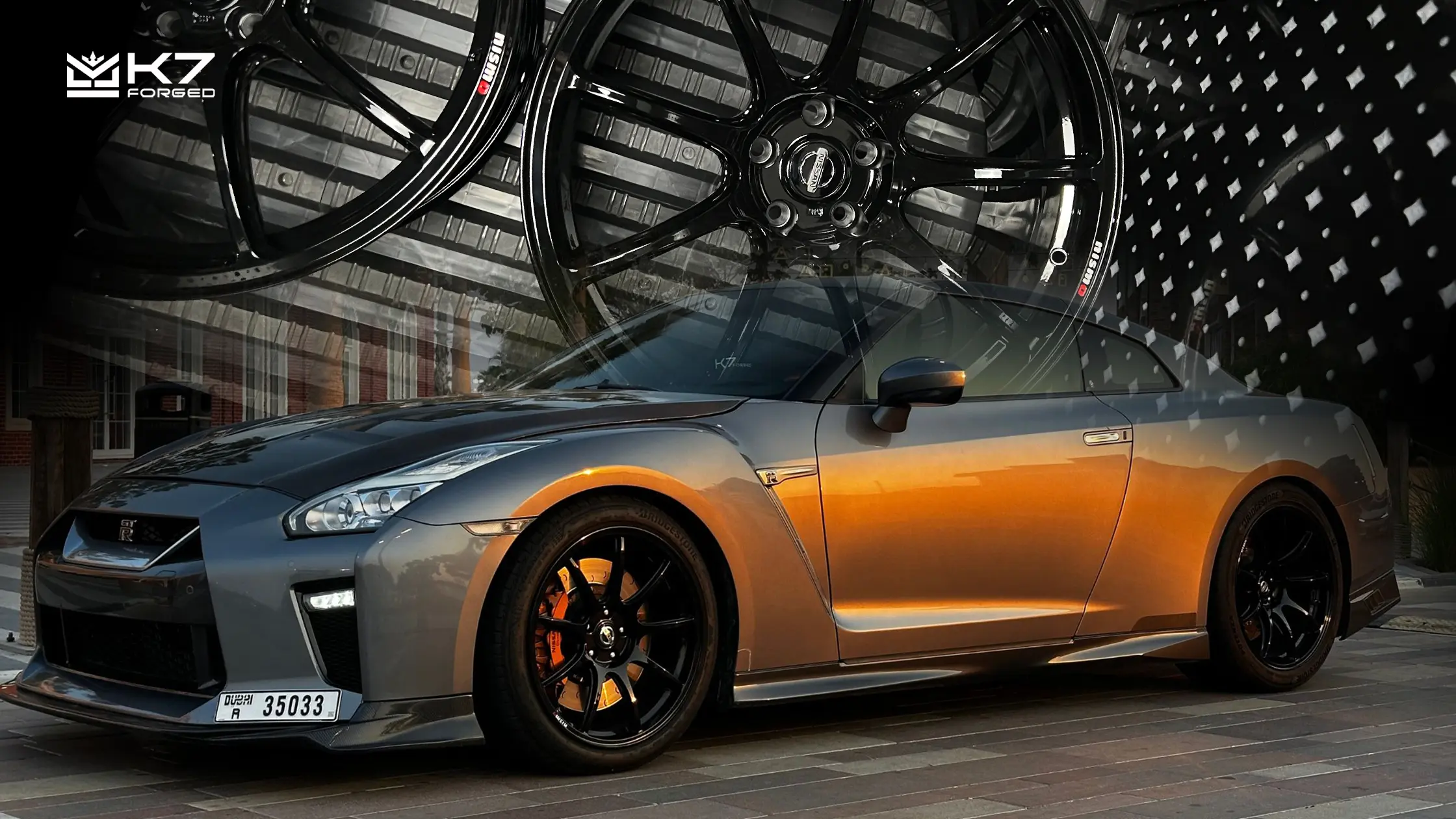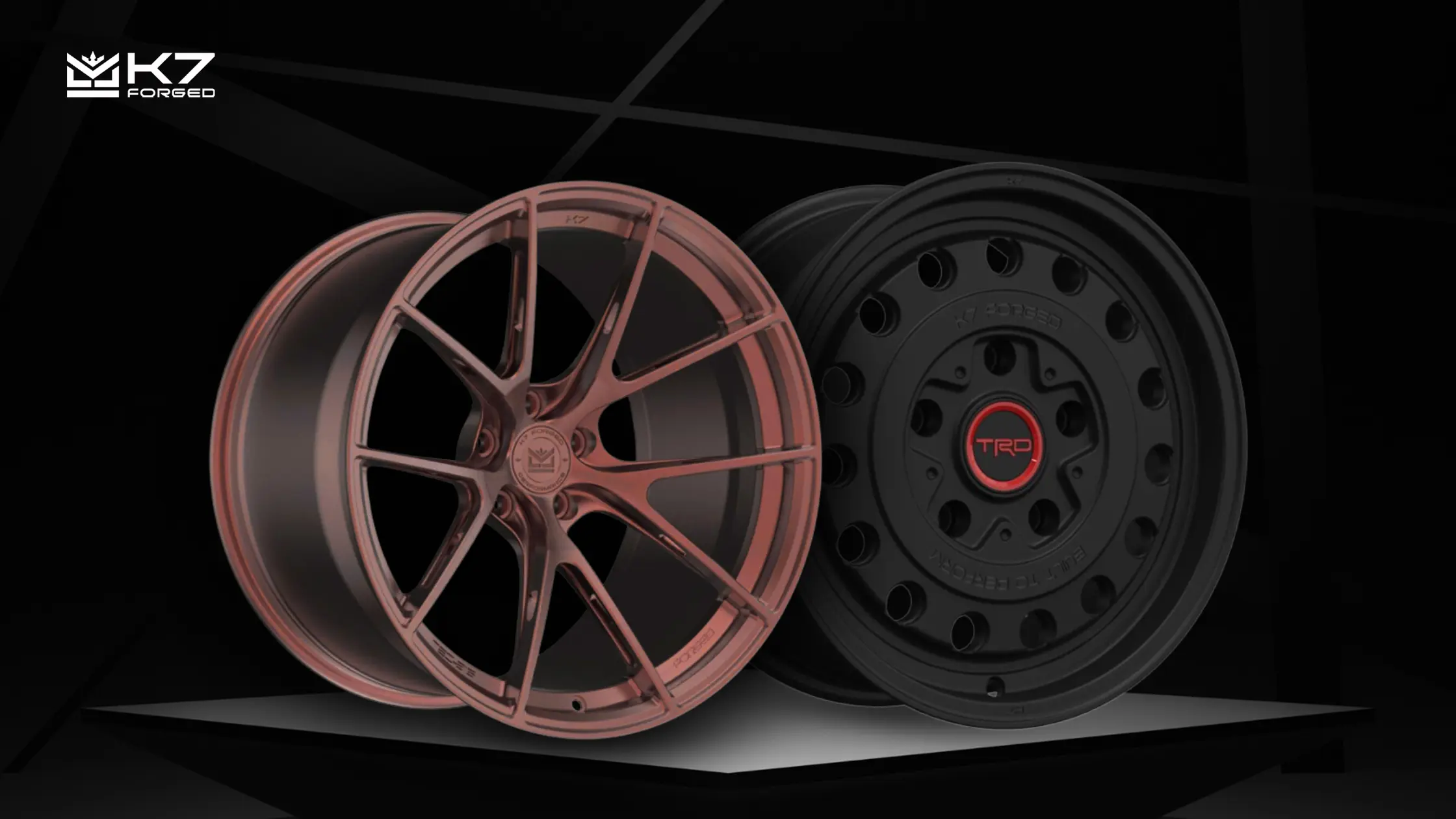The UAE car market is growing rapidly. And whenever there is a rise in sales, more car owners plan on getting custom wheels. If you’re among them, you may wonder: “Will custom wheels affect my car’s warranty?”
The motor vehicle insurance market in the UAE is estimated to reach US$1.45bn in 2025. You may already know how choosing aftermarket components for your car affects its warranty. But when it comes to wheels, warranty claims can be difficult to understand.
Some custom wheel manufacturers in Dubai may provide good warranties for their wheels. And very few like K7 Forged give lifetime warranty for all our forged wheels. So, you can buy from K7 Forged without warranty woes.
But what about your car? Will your vehicle lose warranty if you fit it with aftermarket wheels? Here’s everything to know.
What Exactly Are Custom Wheels?
When you hear the words “custom wheels”, it may seem like it only refers to wheel rims with flashy designs and paint jobs. But in reality, custom wheels are any wheels different from the ones that came with your car in the factory.
It may be a different size, material, or design – anything that isn’t factory-fitted falls under custom wheels.
Factory Wheels vs Custom Wheels
Your car comes with factory wheels, or we call OEM (Original Equipment Manufacturer) wheels. Automakers design these wheels to meet some performance, safety, and durability standards. Then they test these wheels with your vehicle’s suspension, brakes, and handling. But they may have different wheel trims for different variants of the same car.
Custom wheels are any wheels that replace these original ones. Third-party manufacturers manufacturers may make them with the same specifications, or even better ones, but they are still custom. Even changing to a different set of OEM wheels from another model of the same car company is a customization.
Types of Custom Wheels
- Aftermarket Wheels – Third-party wheel manufacturers make or import them from other manufacturers. So, these wheels have a wide range of styles, sizes, and finishes.
- Replica Wheels – These are copies of OEM wheels sold at a lower price. They may look the same, but their quality and durability may not hold a candle against the OEM ones.
- Modified OEM Wheels – Some car owners customize their factory wheels by repainting, polishing, or machining them for a new look. Even minor changes like adding spacers to adjust wheel offset can tag them as custom.
What Makes a Wheel ‘Custom’?
A wheel is custom if it differs from the factory specifications in any of the ways below:
- Size: If you upgrade to larger or wider wheels, it affects your car’s handling and performance.
- Material: Switching from steel to alloy or forged wheels changes the weight and strength of the wheels.
- Design: different spoke patterns, finishes, and colors give a personalized touch.
- Offset and Fitment: Changing the offset or wheel positioning to get a different stance.
Why This Matters for Your Warranty
If you know what qualifies as custom wheels, you can be more careful about warranty claims. Automakers have specific guidelines about modifications. So, check with your dealership or wheel manufacturer in Dubai to make sure your new wheels won’t cause any warranty issues.
Do Custom Wheels Void Your Car’s Warranty?
Car manufacturers give warranties to cover defects in materials or workmanship. However, if you install custom wheels, especially those not approved by the manufacturer, it may lead to warranty disputes.
See, if a wheel bearing fails and you’ve installed wheels with different specifications than the original, the manufacturer could deny the warranty claim, arguing that the modification caused the issue. In this case, you can’t blame the manufacturer.
Car warranties aren’t a “do this and your whole warranty is void” system. Unless you change something that causes a problem in the car’s normal working, your warranty is good to go.
For instance, if your steering wheel volume control isn’t working after you install custom wheels, then the warranty holds in your favor.
Suppose you added an aftermarket wheel that is larger in diameter than your factory specification. Then your speedometer will show small changes in the reading. But if you take this to the manufacturer to claim free labor cost to reprogram the speedo, you may not get it. Because the diameter change directly impacted the normal functioning of your vehicle part.
Authorized Modifications
Some car manufacturers may allow certain modifications if done by authorized dealers. So consult your dealer before you make any modifications. They can guide you on approved customizations that won’t void your warranty.
UAE Consumer Protection Laws and Vehicle Modifications
In the UAE, Federal Law No. 15 of 2020 on Consumer Protection safeguards your rights as a consumer. This law means that products and services meet quality standards and that you’re treated fairly.
What does it mean for Car Owners?
For vehicle modifications, this law emphasizes transparency. If you’re planning to buy custom wheels in Dubai, it’s essential to understand how it will change your car. And whether it might affect your car’s warranty.
The law mandates that dealers and wheel manufacturers in Dubai provide clear information about warranty terms and any actions that could void it.
Tips to Ensure Your Warranty Remains Intact
- Consult Your Dealer
Your car dealer can tell you if adding custom aftermarket or forged wheels will impact your warranty.
- Use Authorized Service Centers
Do modifications at authorized service centers, so the work meets the manufacturer’s standards and reduces the risk of voiding your warranty.
- Keep Documentation
Maintain detailed records of all modifications, including receipts and any communications with your dealer or manufacturer. This helps if there’s ever a dispute about your warranty coverage.
Buy Forged Wheels in Dubai from K7 Forged
If you’re passionate about driving, then your car’s warranty getting void wouldn’t bother you. Because at K7 Forged, you can get the highest quality forged wheels that improve your car. Never the opposite.
